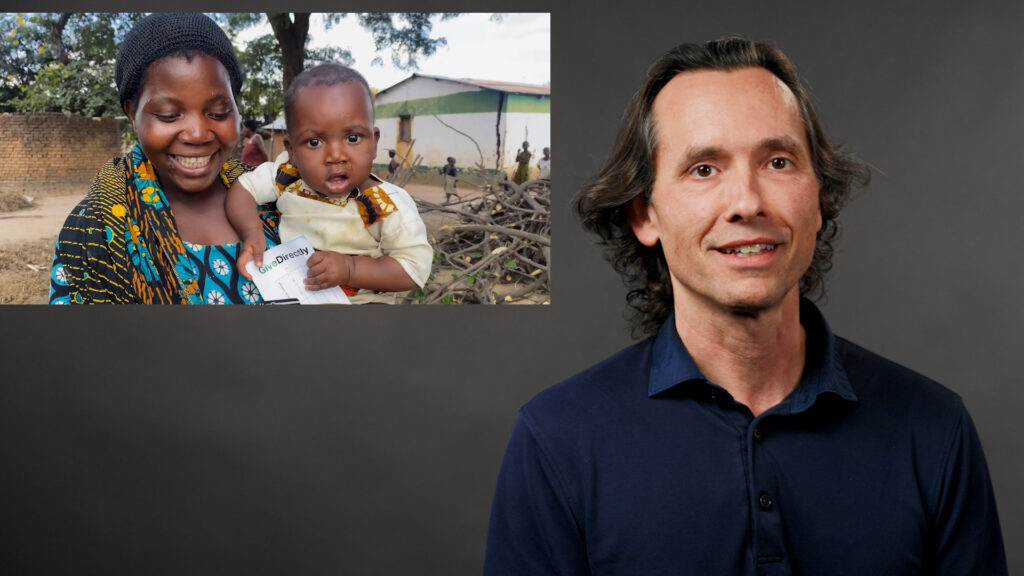Science
UC Berkeley Professor Breaks Down Foreign Aid in 101 Seconds

In a brief yet impactful presentation, Edward Miguel, faculty co-director of the Center for Effective Global Action at UC Berkeley, succinctly explains the complexities of foreign aid in just 101 seconds. His goal is to clarify how foreign assistance can effectively improve the lives of some of the world’s most impoverished populations.
Understanding Foreign Aid
Foreign aid plays a critical role in global development, particularly for countries facing extreme poverty. During his concise talk, Miguel highlights key aspects of foreign aid, emphasizing its potential benefits and pitfalls. By breaking down the fundamental principles, he aims to enhance public understanding of how aid mechanisms operate.
Miguel’s research focuses on the effectiveness of different aid strategies and their real-world impacts. He points out that while foreign aid can provide immediate relief, it is essential to ensure that it is used efficiently and transparently. This approach can lead to sustainable improvements in health, education, and economic stability in recipient countries.
The Role of Research in Aid Effectiveness
As a prominent figure in the economics field, Edward Miguel has dedicated his career to studying the intersection of aid, policy, and development. His work at the Center for Effective Global Action involves rigorous evaluation of aid projects to determine their effectiveness in alleviating poverty.
Through his research, Miguel aims to provide valuable insights that can guide policymakers and organizations in making informed decisions about foreign aid distribution. By emphasizing evidence-based approaches, he advocates for strategies that prioritize long-term benefits over short-term relief.
Miguel’s presentation serves as a timely reminder of the ongoing challenges in global development and the importance of understanding the mechanisms of foreign aid. As countries continue to navigate economic uncertainties, his insights could play a pivotal role in shaping future aid initiatives.
For anyone interested in the dynamics of foreign aid and its impact on global poverty, Miguel’s brief explanation provides a gateway into a complex yet vital topic. As discussions around international assistance evolve, the need for informed dialogue remains crucial in addressing the needs of the world’s poorest populations.
-

 Lifestyle3 months ago
Lifestyle3 months agoLibraries Challenge Rising E-Book Costs Amid Growing Demand
-

 Sports3 months ago
Sports3 months agoTyreek Hill Responds to Tua Tagovailoa’s Comments on Team Dynamics
-

 Sports3 months ago
Sports3 months agoLiverpool Secures Agreement to Sign Young Striker Will Wright
-

 Lifestyle3 months ago
Lifestyle3 months agoSave Your Split Tomatoes: Expert Tips for Gardeners
-

 Lifestyle3 months ago
Lifestyle3 months agoPrincess Beatrice’s Daughter Athena Joins Siblings at London Parade
-

 World3 months ago
World3 months agoWinter Storms Lash New South Wales with Snow, Flood Risks
-

 Science3 months ago
Science3 months agoTrump Administration Moves to Repeal Key Climate Regulation
-

 Science2 months ago
Science2 months agoSan Francisco Hosts Unique Contest to Identify “Performative Males”
-

 Business3 months ago
Business3 months agoSoFi Technologies Shares Slip 2% Following Insider Stock Sale
-

 Science4 months ago
Science4 months agoNew Tool Reveals Link Between Horse Coat Condition and Parasites
-

 Sports3 months ago
Sports3 months agoElon Musk Sculpture Travels From Utah to Yosemite National Park
-

 Science4 months ago
Science4 months agoNew Study Confirms Humans Transported Stonehenge Bluestones









